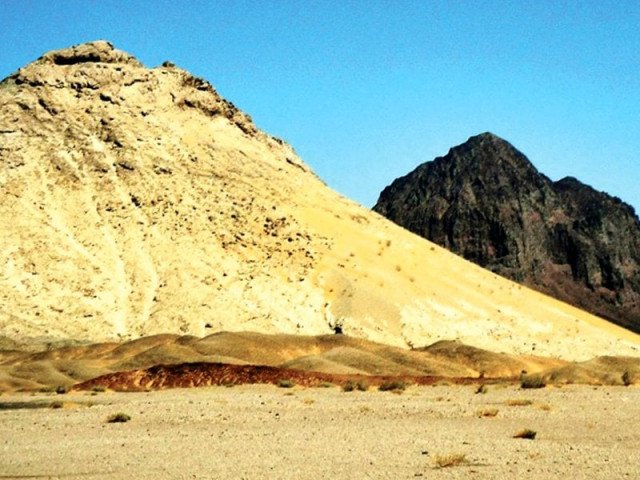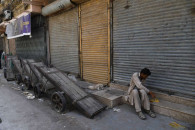'Govt trying to hand over Reko Diq to TTC again'
Ex-advocate general says multiple laws were violated in agreement that SC declared void

Reko Diq, Balochistan.
PHOTO: FILE
Addressing a press conference at the Balochistan High Court on Saturday, Amanullah Kanrani, who is also president of the Supreme Court Bar Association (SCBA), said the top court in its 2013 verdict had declared the agreement void ab initio, declaring it in conflict with the country’s laws.
He said multiple laws were violated in agreements pertaining to the copper and gold mines in Chagai district from the very beginning. The Balochistan Development Authority (BDA) – and not the Balochistan government – entered into a temporary deal with the BHP in the 1990s.
“The BDA is an autonomous body and lacks the mandate to make such a deal,” he said.
He added that foreign firms, including the TCC, had also used delaying tactics to pressure the provincial government of the time to grant concessions and benefits without taking the interest of the province and the country into consideration.
“Over the years, these companies did not abide by the agreements,” he said. As per rules, the provincial government can only provide 200 acres at the rate of Rs5 to the company.
“Instead, 33 lakh acres were given at the rate of Rs1. The Balochistan Mining Concession Rules 1970 were changed to Balochistan Mineral Rules 2002 on the insistence of the foreign company.”
Despite these concessions, according to Kanrani, the TCC could not submit the feasibility on time. “The company also underreported deposits in the feasibility report,” he said, adding that the feasibility was of two drill holes instead of the required 15. “It was due to such practices that people started comparing the TCC to the East India Company.”
To a question about $5.9 billion penalty imposed on Pakistan by the International Centre for Settlement of Investment Disputes (ICSID), Kanrani said the foreign company – which is a joint venture company of Barrick Gold of Canada and Antofagasta Minerals of Chile – is trying to scare the Balochistan government into giving it the Reko Diq project. “But there are other multinational companies with which better terms can be negotiated,” he added.
“When I was the advocate general of Balochistan and the one who pleaded the Reko Diq case at international forums during the tenure of Nawab Aslam Raisani, the TCC even opposed Dr Samar Mubarakmand working at one of the holes,” recalled Kanrani.
“We fought back and ensured that Dr Mubarakmand was permitted to work there because Pakistan is a sovereign country and you could not disallow it from working on its own territory.”
The SCBA president also cautioned the CM Kamal-led Balochistan government against handing over Reko Diq to the TCC. “In doing so, the Balochistan government will trample on the Supreme Court verdict.”



















COMMENTS
Comments are moderated and generally will be posted if they are on-topic and not abusive.
For more information, please see our Comments FAQ